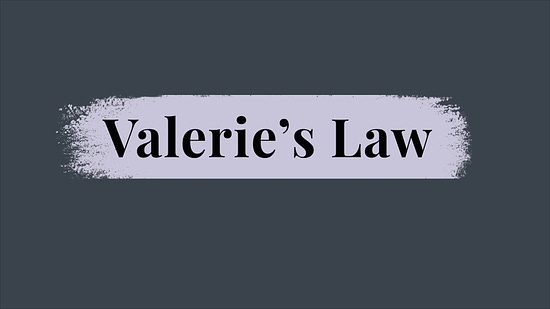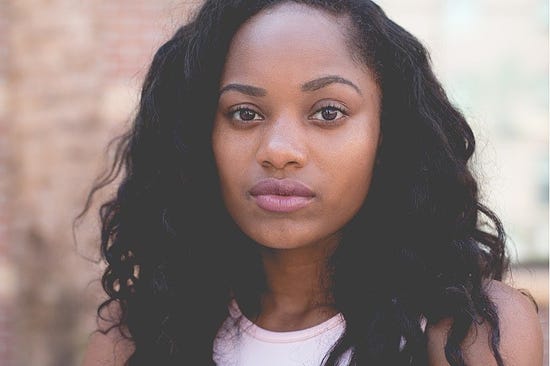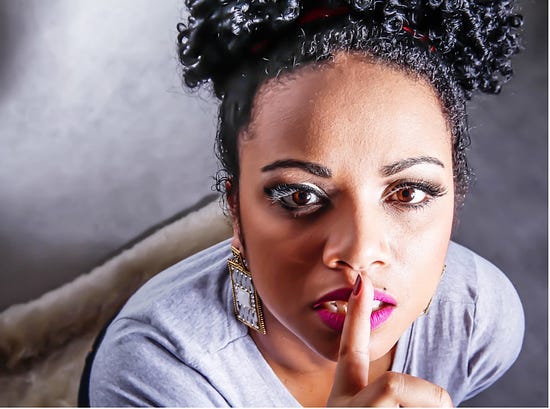She Dares To Say - Guest Post: ‘Valerie’s Law’
These guest posts are free for readers, but Almaz pays all guest writers/thinkers out of her own pocket. If you enjoy this content and would like to support please consider becoming a paid subscriber of ‘She Dares to Say’. If you would prefer to make a one-off donation, feel free to also send a contribution via PayPal. You can also show your enjoyment without spending £££, by liking, commenting or sharing 😃 A note from Almaz: This month, the guest post is being published first, with Almaz’s essay dropping on Wednesday 19 January. A note from the author: Some content featured in this article may be distressing, but it has been used for the purpose of discussion. This piece was written in November 2021. At the date of writing, the petition for Valerie’s Law accumulated 100,000 signatures which means it will now be considered for debate in Parliament. [Image description: Text ‘Valerie’s Law’ on a navy blue background with a lilac paintbrush stroke] “It’s no use of talking unless people understand what you say.” – Zora Neale Hurston [Image description: Stock image of a young Black woman with shoulder-length black wavy hair] As a previous sexual health advisor for the national health service (NHS) in London, I provided sexually transmitted infection (STI) and human immunodeficiency virus (HIV) results to patients, discussed contraception choices, provided safer sex counselling and made onward referrals to third party agencies and provisions to support patients and service users to manage their health and wellbeing. Earlier this year, I had a consultation with a young woman who attended our service for support after being sexually assaulted. During our conversation, she disclosed that although she had reported what happened to the police, she didn't have a positive interaction with the police officer and his colleagues when she reported the incident. As a young Black woman from London, she historically had issues with the police of being over surveillance in her community so as a result, she already felt reluctant to engage. This feeling of reluctance then intensified during her brief interaction with the officers who handled her case, as she was made to feel rushed, misunderstood and very much dismissed. On top of these feelings, she disclosed that during her disclosure of sexual assault, the officer continued to refer to the incident as "sex" rather than sexual assault. Some people may not see this as a problem and may even play down language as being insignificant or even suggesting this is an issue of miscommunication, but this in itself is a huge concern. If the professionals you speak with who are employed to support and protect you fail to see your vulnerability, how can you trust that they have your best interests at heart? Sex assumes consent, whereas sexual assault is widely understood as any sexual contact or behaviour that occurs without consent. In this instance, the fact that the officers failed to use the correct term denies this young Black woman of her power, agency and voice as a service user. When things happen to your body that you don't consent to, it is a violation and by not understanding or accepting these small but mighty references can contribute to someone feeling either included or excluded. Historically, Black women have voiced that their concerns and experiences when reporting domestic abuse (DA) have not been listened to or taken seriously. Stereotypes of Black women being too strong, too loud, too assertive and too aggressive feed into these experiences, thereby impacting how much Black women trust and disengage with systems. Here we see a real-life example of how these incidents present in everyday circumstances, which begs the question; how would this woman be received by police if she was not a Black woman? Cultural Competency In recent years health professionals have been encouraged and supported to become more culturally competent, which refers to the ways in which health professionals provide care, specifically acknowledging the particular cultural needs of people and communities. During Sexual Health Week in September 2019 which focused on inclusive sex and relationship education in line with the introduction of mandatory Relationships and Sex Education (RSE) in schools, I launched an Intimate Partner Violence (IPV) Awareness Animation called ‘I Know He Loves Me’ through my sexual health awareness social enterprise Shine ALOUD UK. This short animation centres on the lived experience of a Black female experiencing intimate partner violence, whilst shining a light on the importance of culturally sensitive and relevant resources for Black and minoritised communities - much of which is lacking in current mainstream sexual and reproductive health service provision. Anyone can experience intimate partner violence regardless of their gender, race, age, or ability. However, it is well known that black and minoritised women can experience increased risks of abuse due to entrenched systems of discrimination and barriers to accessing care and support some of which include, language differences, concerns about confidentiality, and cultural stigmas. During my process of conducting research for the animation, we held focus groups with black and mixed-race women to inform the content of the script. Some of the women in the focus groups felt that domestic abuse wasn’t something that happened in their community, because poster campaigns and films didn’t feature black people. As we know this is not the case. But it was a clear indication of how invisible these young women felt, which raises alarm bells around awareness of abuse and the opportunities black women have to access care and support. [Image description: Stock image of a fair-skinned Black woman with a finger at her lips in a ‘be quiet’ gesture] Valerie’s Law Sistah Space, an African Heritage domestic violence charity has been campaigning for Valerie's Law, which seeks to make specialist training mandatory for all police and other government agencies that support Black women and girls affected by domestic abuse. The campaign has been launched to honour the life and legacy of Valerie Forde and her 23-month-old daughter, who were both brutally murdered by Valerie’s ex-partner in 2014. Six weeks before Valerie and her daughter’s murder, Valerie reported McKoy’s threats to police, but this was carelessly recorded as a threat to the property rather than a threat to life. This again begs the question would this inaccuracy in recording the threats have happened if Valerie was not a Black woman? If police services and other agencies have culturally appropriate training, there is a hope that they will begin to understand better the cultural needs of Black women affected by domestic abuse, specifically gaining an awareness of their vulnerability to harm. There is hope that by gaining better understanding of how culture and health present within healthcare, health professionals can better understand and influence how people and communities experience health care and health outcomes. To coin the words of Ntozake Shange, “I’m a firm believer that language and how we use language determines how we act, and how we act then determines our lives and other people’s lives.” [Image description: Text ‘POSTSCRIPT’ on a navy blue background with a lilac paintbrush stroke] This month, I’ve made the ‘POSTSCRIPT’ content available for all subscribers and you’ll receive it next week. To access all past and future ‘POSTSCRIPT’ mailouts, upgrade to a paid subscription. [Image description: Text ‘PRODUCED BY’ on navy blue background with a lilac paintbrush stroke] Rianna Raymond-Williams FRSA FRSPH currently works as Portfolio Manager for Impact on Urban Health (IoUH), which is a part of Guy’s & St Thomas’ Foundation, a charitable foundation. Here, she co-leads work on trust in health systems, and the role trust plays in creating health equity. Before joining IoUH, Rianna worked as a Sexual Health Advisor for the NHS in East London. She is currently in the first year of her PhD studies at Glasgow Caledonian University in London, where she intends to explore how Black women in the UK make sense of their sexual identity. ‘She Dares to Say’ is an email newsletter by Almaz Ohene, a Creative Copywriter, Freelance Journalist and Accidental Sexpert. If you would prefer to make a one-off donation, feel free to also send a contribution via PayPal. You’re a free subscriber to She Dares To Say. For the full experience, become a paid subscriber. |
Older messages
Guest Post: ‘Book Club’
Wednesday, December 15, 2021
Written by Lotte Hiller (she/her)
#12: Deconstructing my writing process
Wednesday, December 1, 2021
In which I go behind the scenes...
Guest Post: ‘More Explicit Material’
Wednesday, November 17, 2021
Written by Jennifer Lyon Bell (she/her)
#11: Explicit Material
Tuesday, November 9, 2021
In which I think critically about p*rn...
You Might Also Like
*This* Is How To Wear Skinny Jeans Like A Fashion Girl In 2025
Wednesday, March 12, 2025
The revival is here. The Zoe Report Daily The Zoe Report 3.11.2025 This Is How To Wear Skinny Jeans Like A Fashion Girl In 2025 (Style) This Is How To Wear Skinny Jeans Like A Fashion Girl In 2025 The
The Best Thing: March 11, 2025
Tuesday, March 11, 2025
The Best Thing is our weekly discussion thread where we share the one thing that we read, listened to, watched, did, or otherwise enjoyed recent… ͏ ͏ ͏ ͏ ͏ ͏ ͏ ͏ ͏ ͏ ͏ ͏ ͏ ͏ ͏ ͏ ͏ ͏ ͏ ͏ ͏ ͏ ͏ ͏ ͏ ͏ ͏ ͏
The Most Groundbreaking Beauty Products Of 2025 Are...
Tuesday, March 11, 2025
Brands are prioritizing innovation more than ever. The Zoe Report Beauty The Zoe Report 3.11.2025 (Beauty) The 2025 TZR Beauty Groundbreakers Awards (Your New Holy Grail Or Two) The 2025 TZR Beauty
Change Up #Legday With One of These Squat Variations
Tuesday, March 11, 2025
View in Browser Men's Health SHOP MVP EXCLUSIVES SUBSCRIBE Change Up #Legday With One of These Squat Variations Change Up #Legday With One of These Squat Variations The lower body staple is one of
Kylie Jenner Wore The Spiciest Plunging Crop Top While Kissing Timothée Chalamet
Tuesday, March 11, 2025
Plus, Amanda Seyfried opens up about her busy year, your daily horoscope, and more. Mar. 11, 2025 Bustle Daily Amanda Seyfried at the Tory Burch Fall RTW 2025 fashion show as part of New York Fashion
Paris Fashion Week Is Getting Interesting Again
Tuesday, March 11, 2025
Today in style, self, culture, and power. The Cut March 11, 2025 PARIS FASHION WEEK Fashion Is Getting Interesting Again Designs at Paris Fashion Week once again reflect the times with new aesthetics,
Your dinner table deserves to be lazier
Tuesday, March 11, 2025
NY delis are serving 'Bird Flu Bailout' sandwiches.
Sophie Thatcher Lets In The Light
Tuesday, March 11, 2025
Plus: Chet Hanks reaches new heights on Netflix's 'Running Point.' • Mar. 11, 2025 Up Next Your complete guide to industry-shaping entertainment news, exclusive interviews with A-list
Mastering Circumstance
Tuesday, March 11, 2025
“If a man does not master his circumstances then he is bound to be mastered by them.” ͏ ͏ ͏ ͏ ͏ ͏ ͏ ͏ ͏ ͏ ͏ ͏ ͏ ͏ ͏ ͏ ͏ ͏ ͏ ͏ ͏ ͏ ͏ ͏ ͏ ͏ ͏ ͏ ͏ ͏ ͏ ͏ ͏ ͏ ͏ ͏ ͏ ͏ ͏ ͏ ͏ ͏ ͏ ͏ ͏ ͏ ͏ ͏ ͏ ͏ ͏ ͏ ͏ ͏ ͏ ͏ ͏ ͏
Don't Fall for This Parking Fee Scam Text 🚨
Tuesday, March 11, 2025
How I Use the 'One in, One Out' Method for My Finances. You're not facing any fines. Not displaying correctly? View this newsletter online. TODAY'S FEATURED STORY Don't Fall for the





